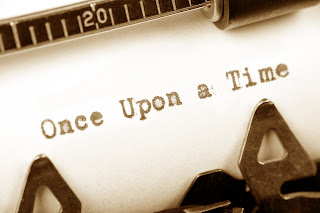Writing the novel seems like the difficult part. And for the
most part, it is. Trying to get your newly finished book published, however, is
a whole different ball game.
In my opinion, writing the book is more fun—by far. But, if
you want to see the words you slaved over in a nice hardcover book, just
writing those words is only half the battle. You have to learn to move from the
creative side to the business side.
This is not easy, if it was I would be published already!
But I know that sticking to it will bring great rewards. You just have to
remain motivated enough to see it through. I am struggling with this currently,
so I thought I would share some tips that I’ve found to help you get through
the submission process and all of the not so fun things that come with it.
Author Karina Fabian says, “No one has the same submission process. It takes
work and imagination—and perseverance.”
1.
Keep sending it! Keep finding agents and
publishers to send it to, and send it!
As much as we would all like to
crawl in bed and give up after the first rejection, you can’t give up! Cry a little,
sure, but then send it again. Different people have different opinions. Just
because one agent didn’t like your book, that doesn’t mean that the next one
will think the same way. One day, you will find the perfect agent for your
book. So you just have to keep sending it to people until you find them.
2.
Don’t stop writing.
But you’re done with the writing
process, right? Wrong. Never stop writing. Tweak your book until its perfect,
and when you’re finished with that, write something else. Start a new book,
write a short story, try out poetry. Anything! Just don’t ever stop writing.
Strengthening your skills can only make the submission process easier!
Author Robin McKinley says, "So if you think your manuscript is good, keep sending it out. But go on writing something else. Breaking into print is an enormous, glorious, intoxicating triumph, but the only, the only thing that makes you a writer, is writing."
3.
Stay positive
You’ve put enormous amounts of
work…blood, sweat, and tears…into this book. Believe in yourself and the
quality in your book, and never give up on seeing it published. It may take
days, months, or years, but if you keep developing your skill and sending your
work out, it will pay off. I promise.
Author Katrin Schumann says, "Writing can be a long journey. Are you learning and enjoying yourself along the way? Then keep at it."
4.
Have fun
Stop working every once in a
while and do something you enjoy…besides writing! You finished an entire novel,
you certainly deserve it! Getting your focus off of your work is important. And
when you come back to it, you’ll have more determination and energy to get the
job done. Win-win!
Digital publisher Nick Cross says, "Do find a new hobby to fill the tense weeks and months while the book is out for submission. Consider embarking on writing a multi-book series about wizards or vampires, or buy a really, really big jigsaw."
The submission process seems daunting, and it can be
stressful at times, but if you keep working and continue to believe in yourself
and your work, you can achieve your ultimate goal: your book in print. And who
doesn’t want that?






